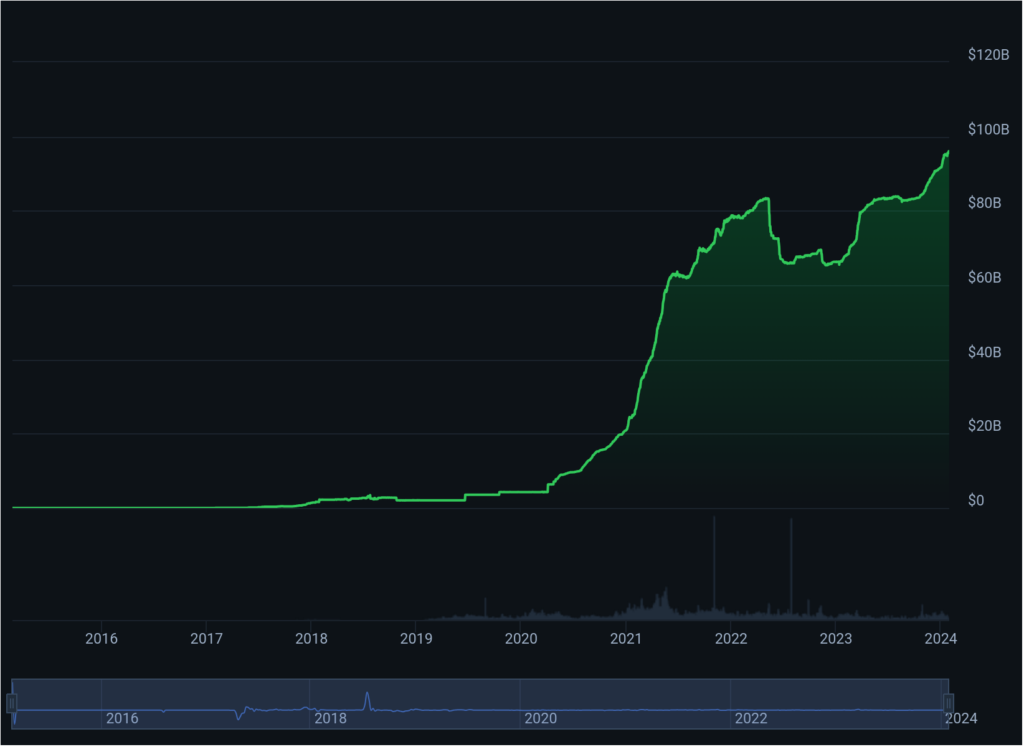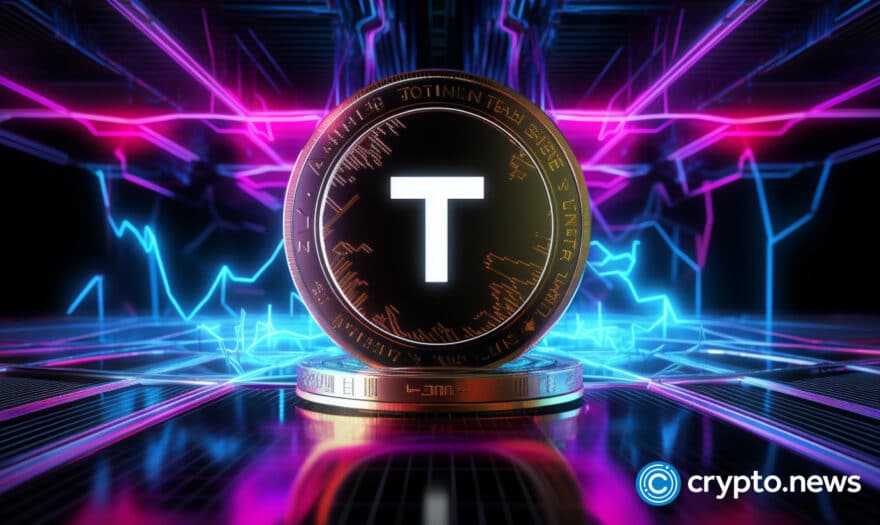Tether minted another $1b USDT on Tron, here’s why

Stablecoin operator Tether again minted a trove of USDT tokens on Tron’s network, but there’s a catch: the coins aren’t yet available for swaps or transactions.
According to LookOnChain, Tether has minted $13 billion in new USDT tokens on Ethereum and Tron blockchains since October last year. The latest addition to Justin Sun’s Tron decentralized network is $1 billion in USDT.
While the tokens have been minted, on-chain data showed that the USDT added to Tron on Jan. 29 has not been issued yet. This means that the massive mint was intended for future purposes, as confirmed by Tether CEO Paolo Ardoino.
Ardoino’s clarification, however, has not dispelled speculation that Tether’s mint may foreshadow price increases across a swathe of cryptocurrencies. An uptick in the creation of new USDT is usually tied with bullish sentiment and is sometimes employed as an indicator to signal rising demand.
Tether’s total market capitalization, a staggering $96 billion at press time, has been in an uptrend since January last year following multiple marquee crypto bankruptcies and collapses like Terraform, Three Arrows Capital, and FTX.

In those 12 months, USDT’s cap map grew by nearly $30 billion and solidified its position as the dominant stablecoin on the market, but former Bitmex CEO Arthur Hayes believes legacy financial institutions could challenge this trend.
During an interview, Hayes said banks like JPMorgan are positioned to overtake Tether and rivals like Circle if and when regulators permit fiat-backed stablecoin issuance.
Hayes did not surmise when this shift might occur but the 2024 U.S. presidential election may be pivotal in shaping America’s whole-of-government approach to blockchain adoption and crypto assets. Galaxy Digital CEO Mike Novogratz said crypto regulations before an election outcome are unlikely. Some lawmakers foresee friendlier digital asset rules depending on who eventually wins.
Recently, GOP candidate Donald J. Trump bashed CBDCs and independent runner Robert F. Kennedy labeled them a threat to civil liberties.

















